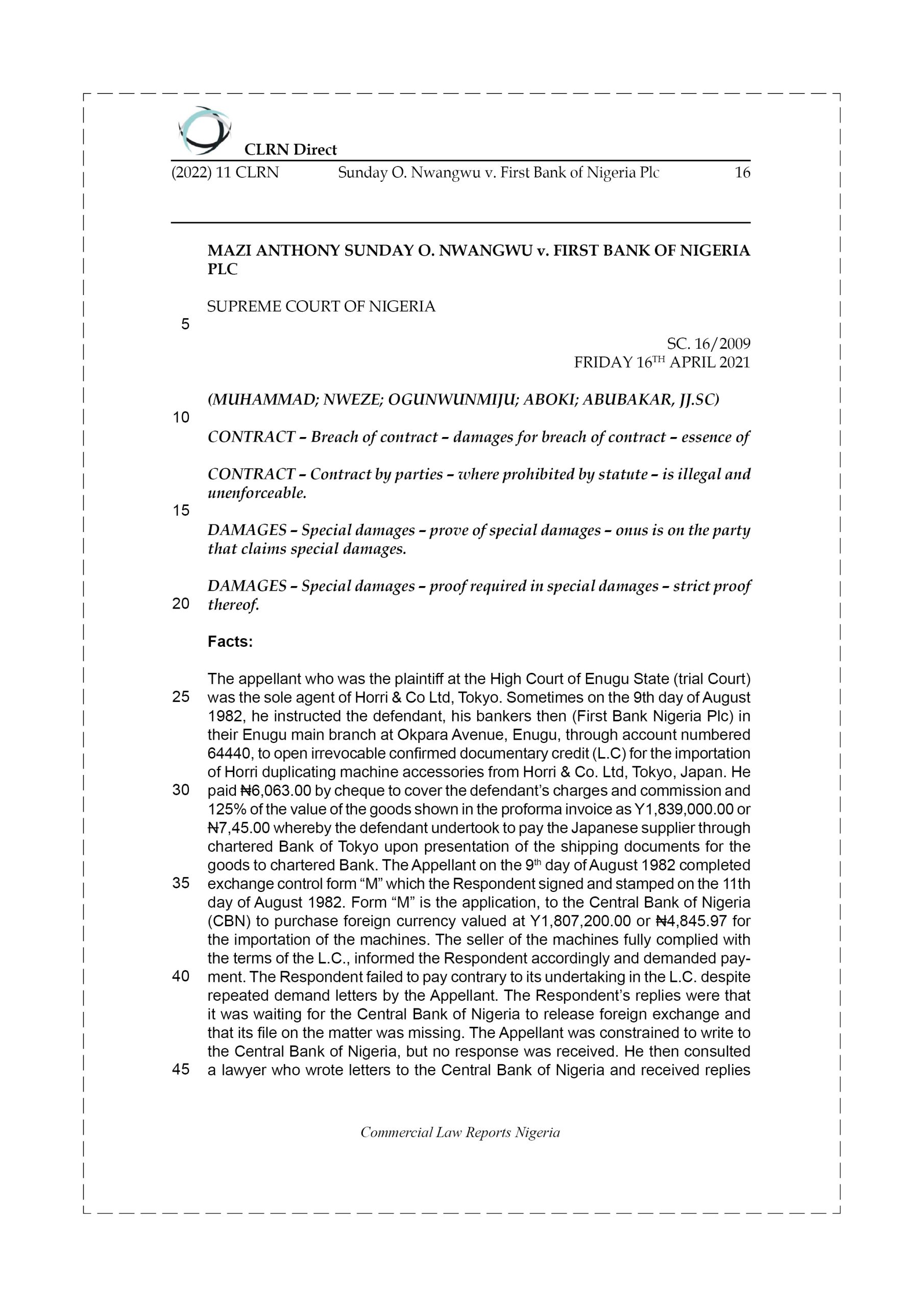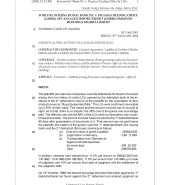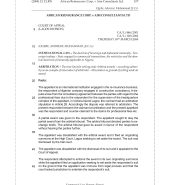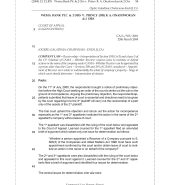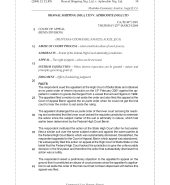-

September 2015 - Volume
- kg
1 × ₦4,000
-

Ajaokuta Steel Co. Ltd & 2 Ors. v. Corporate Insurers Ltd
- kg
1 × ₦1,000
SUNDAY O. NWANGWU v. FIRST BANK OF NIGERIA PLC
₦1,000
In Stock
Facts:
The appellant who was the plaintiff at the High Court of Enugu State (trial Court) was the sole agent of Horri & Co Ltd, Tokyo. Sometimes on the 9th day of August 1982, he instructed the defendant, his bankers then (First Bank Nigeria Plc) in their Enugu main branch at Okpara Avenue, Enugu, through account numbered 64440, to open irrevocable confirmed documentary credit (L.C) for the importation of Horri duplicating machine accessories from Horri & Co. Ltd, Tokyo, Japan. He paid ₦6,063.00 by cheque to cover the defendant’s charges and commission and 125% of the value of the goods shown in the proforma invoice as Y1,839,000.00 or N7,45.00 whereby the defendant undertook to pay the Japanese supplier through chartered Bank of Tokyo upon presentation of the shipping documents for the goods to chartered Bank.
The Appellant on the 9th day of August 1982 completed exchange control form “M” which the Respondent signed and stamped on the 11th day of August 1982. Form “M” is the application, to the Central Bank of Nigeria (CBN) to purchase foreign currency valued at Y1,807,200.00 or ₦4,845.97 for the importation of the machines. The seller of the machines fully complied with the terms of the L.C., informed the Respondent accordingly and demanded payment. The Respondent failed to pay contrary to its undertaking in the L.C. despite repeated demand letters by the Appellant. The Respondent’s replies were that it was waiting for the Central Bank of Nigeria to release foreign exchange and that its file on the matter was missing. The Appellant was constrained to write to the Central Bank of Nigeria, but no response was received. He then consulted a lawyer who wrote letters to the Central Bank of Nigeria and received replies that the defendant informed him that the L.C. had been settled contrary to the Appellant’s letter.
The Appellant said following non-payment by the Respondent, the supplier decided to cut off further supplies to him, after shipment of the goods the subject matter of the L.C for which the supplier was not paid. The Appellant said he invested ₦8,010.00 and made a profit of ₦7,384,84. If his business had not been interrupted by the Respondent’s failure to pay the seller on the L.C., he would have made a profit of 6.7 million between 1983 and 2001. The Appel lant also said that the 25% (N318.00) excess deposit made by him in 1982 had not been refunded to him. Its value as of 2001 was ₦6.4 million. He engaged a chartered accountant who professionally made calculations and arrived at the aforesaid figures. In a considered judgment, the Appellant’s claims were dismissed, save for the f irst relief for which the Appellant was awarded a refund of his excess deposit of ₦1,318.00 with interest at 19.5% per annum from 1982 till the date of judgment and 5% per annum thereafter, with the cost of ₦10,000.00.
Being dissatisfied with the judgment, the Appellant appealed to the Court of Appeal, who affirmed the decision of the trial Court and dismissed the appeal. Further aggrieved, the Appellant appealed to the Supreme Court.
